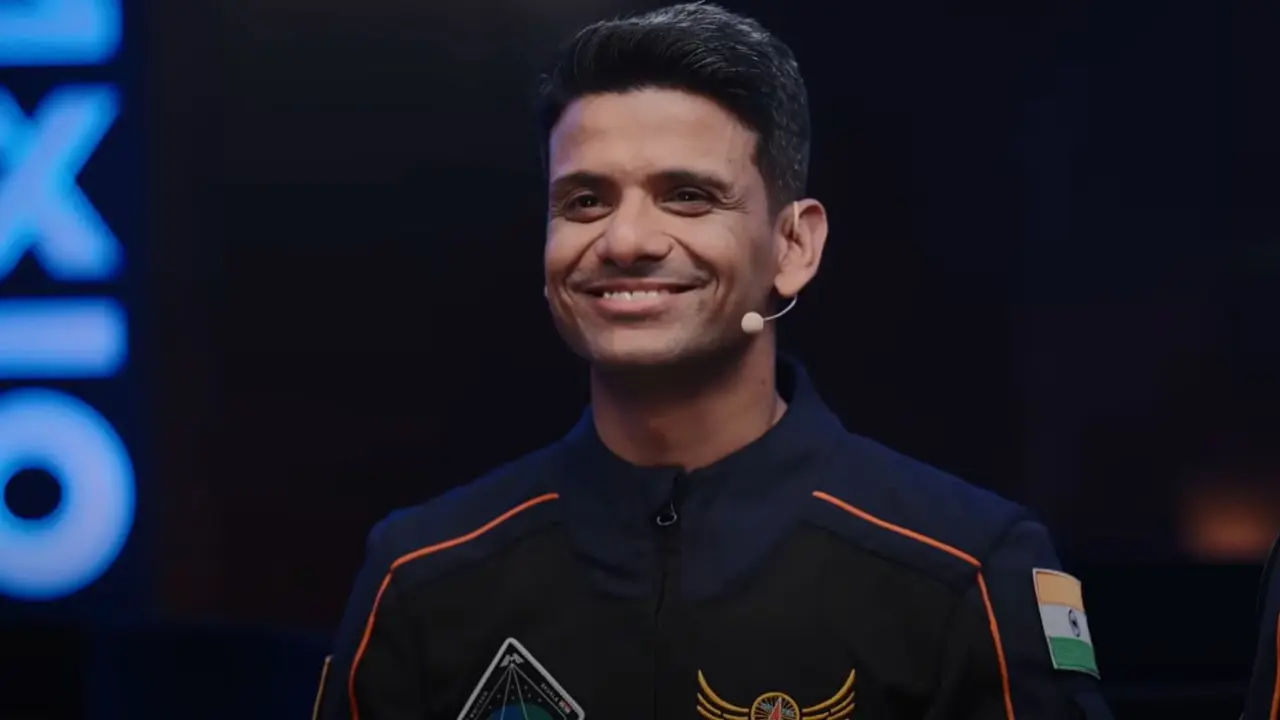Updated 25 June 2025 at 13:42 IST
Axiom Mission 4: What Is Group Captain Shubhanshu Shukla’s Salary? Here's What Astronauts Earn In India And Globally
Axiom Mission 4 has brought Group Captain Shubhanshu Shukla into the spotlight as he becomes the second Indian to travel to space, 41 years after Rakesh Sharma. Here's a look at Shukla’s likely salary as an IAF officer and how astronaut pay compares in India and around the world.
- Republic Business
- 3 min read

India recently marked a proud moment in space history as Group Captain Shubhanshu Shukla piloted the Axiom Mission 4 (Ax-4) — a private spaceflight that launched from NASA’s Kennedy Space Center in Florida.
With this mission, India returns to space after 41 years, and Shukla, speaking from aboard the SpaceX Dragon spacecraft, called it an “amazing ride.”
He also said the journey marks the beginning of India’s Human Space Programme and urged fellow Indians to share the pride and excitement.
But while the nation celebrates the moment, a question that naturally comes to mind is, How much do astronauts like Shubhanshu Shukla earn?
Advertisement
Who Is Group Captain Shubhanshu Shukla?
Group Captain Shubhanshu Shukla of the Indian Air Force is piloting the Ax-4 mission, making him the second Indian to travel to space after Wing Commander Rakesh Sharma’s 1984 mission aboard Soyuz T-11. Ax-4 is the fourth private astronaut mission to the International Space Station, using a new SpaceX Dragon spacecraft and aiming to dock at 4 pm IST on June 26.
Astronaut Salaries in India
According to various media reports, in India, astronauts typically come from the Indian Air Force or are selected by ISRO (Indian Space Research Organisation). Based on available data, the average annual salary of an astronaut working with ISRO ranges between Rs 10 lakh and Rs 30 lakh, depending on their role, experience, and responsibilities.
Advertisement
In India, astronauts usually come from the Indian Air Force or are selected by ISRO. The average annual salary for astronauts in ISRO ranges from Rs 10 lakh to Rs 30 lakh. A command module pilot like Shukla can earn around Rs 16 lakh per year, while a flight engineer may earn up to Rs 30 lakh per year.
Since Shukla is a senior officer from the Indian Air Force and is serving as the pilot for an international mission, his salary is likely to be on the higher end of this range, possibly Rs 30 lakh or more. However, the exact amount may also include additional allowances or compensation depending on the terms of the mission, which are not publicly disclosed.
When compared to other countries, astronaut salaries vary widely. In the United States, NASA astronauts earn between $66,000 and $144,000 per year, which is about Rs 55 lakh to Rs 1.2 crore. In Russia, the salary ranges from $40,000 to $70,000, or Rs 33 lakh to Rs 58 lakh. Astronauts in Europe and Canada earn around €50,000 to €80,000 per year, which is about Rs 45 lakh to Rs 72 lakh.
In China, astronauts make between ¥200,000 to ¥300,000, or Rs 23 lakh to Rs 35 lakh annually.
Astronauts in Western space agencies tend to earn significantly more than their counterparts in India. However, Indian astronauts, especially those serving in national missions, often view their roles as a matter of service and pride rather than financial gain alone.
Also Read: Axiom-4 Launches: Indian Astronaut Begins Historic Journey to International Space Station
The Bigger Picture
As Shubhanshu Shukla said during the Ax-4 flight, “This journey of mine is not a beginning to the International Space Station but to India’s Human Space Programme.”
"I want all of you to be part of this journey. Your chest, too, should swell with pride. You all also show excitement. Together, let's initiate India's Human Space Programme. Jai Hind! Jai Bharat!"
Axiom Mission 4 Details
The crew, led by former NASA astronaut Peggy Whitson, includes astronauts from India, Poland, and Hungary. They will spend up to 14 days aboard the ISS, conducting around 60 scientific studies involving 31 countries, making it Axiom Space’s most research-intensive mission yet.
NASA and ISRO are also collaborating on experiments related to muscle regeneration, plant growth, aquatic organisms, and human-computer interaction in space.
Published By : Anubhav Maurya
Published On: 25 June 2025 at 13:40 IST
